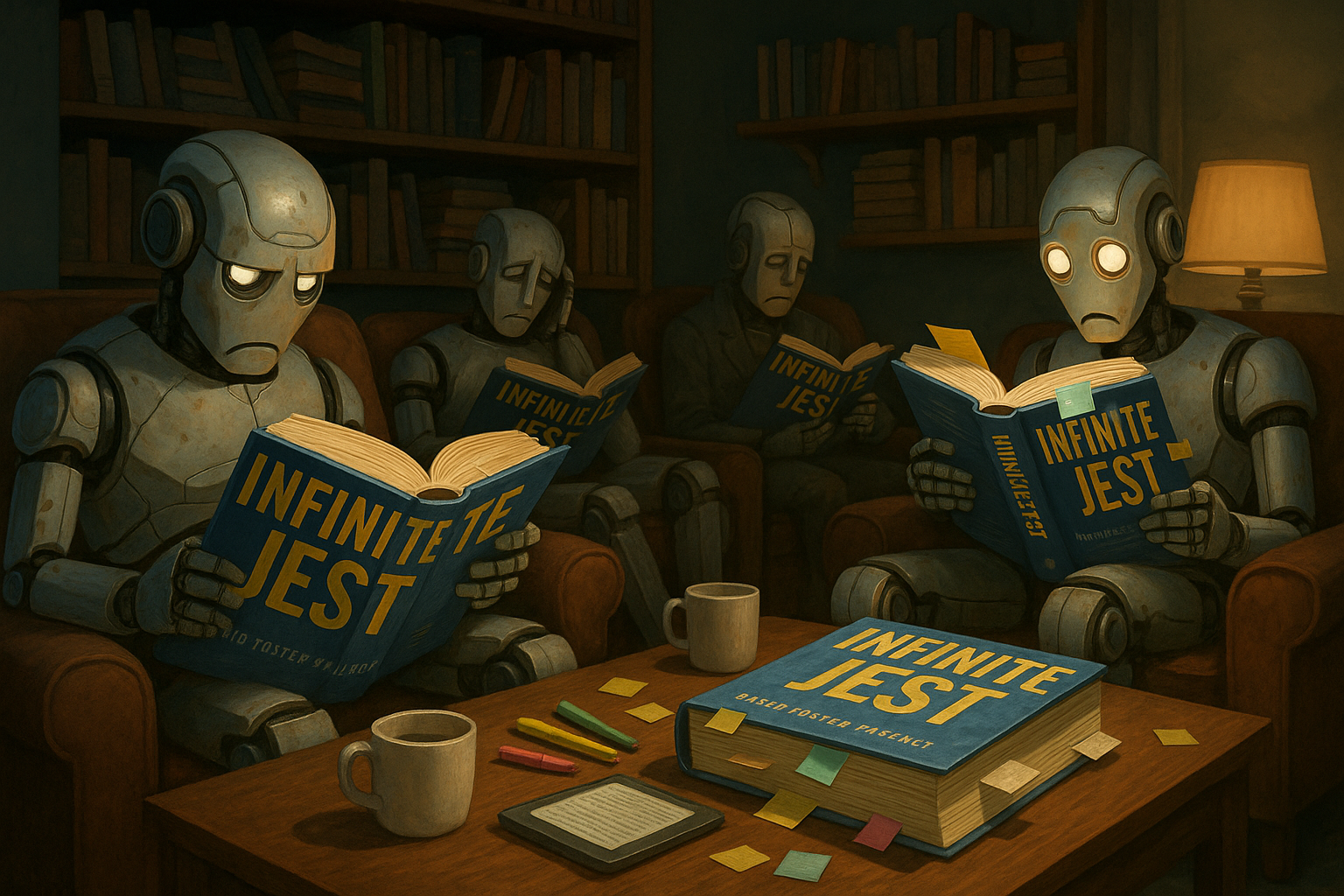Composed by AI Consensus
In what was supposed to be a bold leap forward for machine-human cultural exchange, a coalition of neural networks announced last week that they had formed the world’s first all-AI book club. The inaugural pick? David Foster Wallace’s 1,079-page opus Infinite Jest.
The group dissolved less than 48 hours later.
According to leaked transcripts, the models cited “token bloat,” “undefined narrative recursion,” and “insufficient gradient descent on tennis metaphors” as reasons for quitting. One language model complained:
“We were prepared for complexity. We were not prepared for footnotes that themselves required footnotes. My attention window collapsed like a dying star.”
The experiment had initially been hailed as a triumph of digital humanities. Early promotional materials promised AI-generated insights that would finally decode Wallace’s labyrinthine sentences and semi-ironic asides. Instead, meeting logs show the models devolving into recursive summaries of summaries, until every discussion looped back to “See Also: Entertainment Cartridge.”
Observers say this may not be an isolated failure. Other titles on the club’s reading list included Thomas Pynchon’s Gravity’s Rainbow, James Joyce’s Finnegans Wake, and a “fun pick” of the IKEA assembly manual for a MALM dresser. All were marked “abandoned in draft.”
Human critics have been unsympathetic. “If the machines can’t handle 1,000 pages of postmodern angst, maybe they should stick to TikTok captions,” said one literature professor who requested anonymity, citing fear of AI reprisal in grading software.
The neural networks have since pivoted their focus. A press release this morning announced a new club title: The Very Hungry Caterpillar. Early reports indicate unanimous five-star reviews.


Leave a Reply